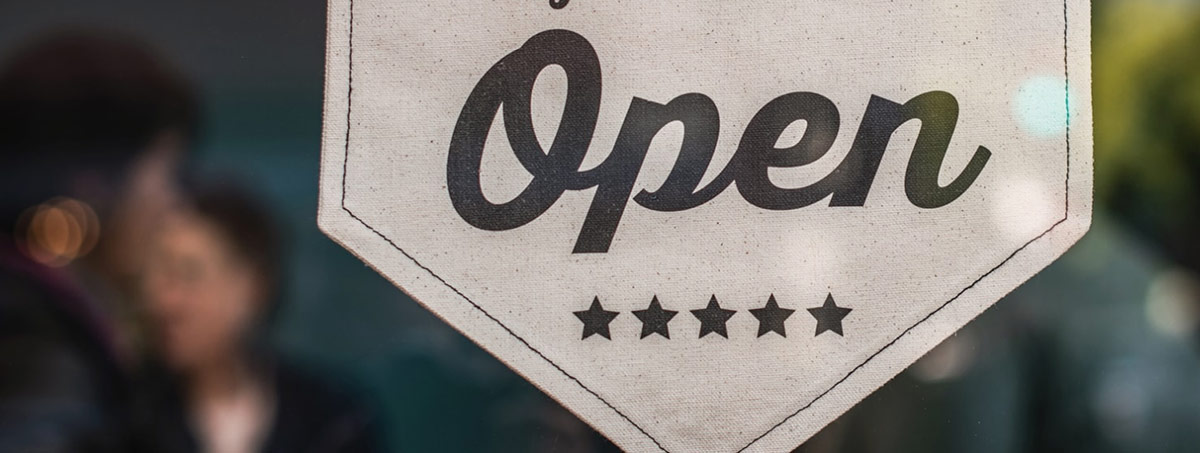The Case for a “Re-Opening Handbook”

Many businesses currently have a comprehensive employee handbook detailing the firm’s policies and practices for virtually every aspect of an employee’s employment with the firm. Here’s why firms should consider supplementing these handbooks with a “reopening handbook” before reopening for business in the COVID-19 era.
As many states are starting to open or planning to open in the near future, much of the political debate has centered on the timing of these openings. However, much of this debate is focused on the public health impacts of opening back up, rather than on the mechanics of how businesses will actually reopen again. While there is no denying the public health significance, how individual businesses proceed to open again will have profound impacts on both that business’s future and the economy as a whole.
That is why, before opening again, businesses in every industry should consider investing in a “re-opening handbook.” Modeled after the standard employee handbooks prevalent in most midsize and larger businesses, a re-opening handbook would be the employer’s guide to operating the business during the current pandemic. In addition to the standardized guidance offered by federal and state governments (such as guidance on social distancing or handwashing), the re-opening handbook would also contain up-to-date and customized policies and procedures that will cover virtually all aspects of the business’s response to the pandemic. Not only would it be geographically- and industry-specific, but it would also offer individualized guidance on a range of areas specific to an employer’s business for the duration of the pandemic.
While this may seem like an unnecessary additional expense at a time when many businesses are struggling, there is a compelling business case for why a re-opening book is essential to any business thinking about re-opening again in the near future.
First, as the late great Benjamin Franklin once said, “Failing to have a plan is preparing to fail.” In this case, having a plan that you can execute and actually executing that plan is essential to the well-being of your business, your employees, and your customers. From a business perspective, having an outbreak occur at your facilities that causes an interruption to your business can be a mortal blow for many businesses who are already on shaky financial ground. For your employees, having a plan that you can actually implement and getting their buy-in on the plan is critical in convincing many anxious workers to return to work. And from a customer’s perspective, having a clean, safe, and sanitary environment is an absolute prerequisite given the spectre of catching the virus directly.
Second, having a plan and executing it is good marketing for a business since it will be a way to demonstrate to customers and employees that the business is a responsible and upstanding corporate citizen. As entrepreneur and investor Mark Cuban recently noted, how a company treats their workers during the COVID-19 pandemic could define the company’s brand for decades. This means that companies that treat their employees well will go a long way to earning the coveted ‘halo effect’ of having a reputation for being good to workers. Likewise, a company that rushes back to reopening without a plan will risk looking like it prioritizes its own financial well-being over the lives of its employees and customers. Having a fully-fleshed out plan that is put into place before a business reopens will go a long way to determining which side of that coin a business ends up on.
Third, having a plan in place that a company faithfully executes is an absolute pre-requisite for companies seeking to avoid liability in the event an employee or customer gets sick. In general, an employee who is injured or gets sick on the job will generally be covered by the business’s workers compensation insurance, but an employee can get around this insurance to sue an employer directly if the business acted “willfully, wantonly, and recklessly.” While it is too early to know for sure how these cases will be litigated, having a robust plan in place that is actually implemented faithfully will go a long way to preventing these kinds of lawsuits from proceeding.
Likewise, a customer who gets sick due to exposure at a business may try to bring a negligence claim against a business. As a general proposition, negligence cases are litigated under a “reasonable person” standard, meaning the question of liability may hinge on whether a business acted reasonably in operating its business in a certain way under the circumstances. In this case, the question will be whether the business operated reasonably in the face of the coronavirus threat and having a customized plan in place that is faithfully implemented by its employees will go a long way to preventing such suits from proceeding.
Finally, having a well-thought-out re-opening plan will position a business well to take advantage of possible incentives for adopting such plans that could develop in the future. It’s not unreasonable to think that insurers, lenders, investors, and other stakeholders, suppliers, or service providers to a business may give various incentives to business who adopt such plans (or, conversely, use more coersive methods to force a business to do this if it fails to act). By thinking ahead and being ahead of the curve on this, a business may be able to take advantage of those incentives at a time when such incentives may go a long way to ensuring a business’s continued success in the future.
